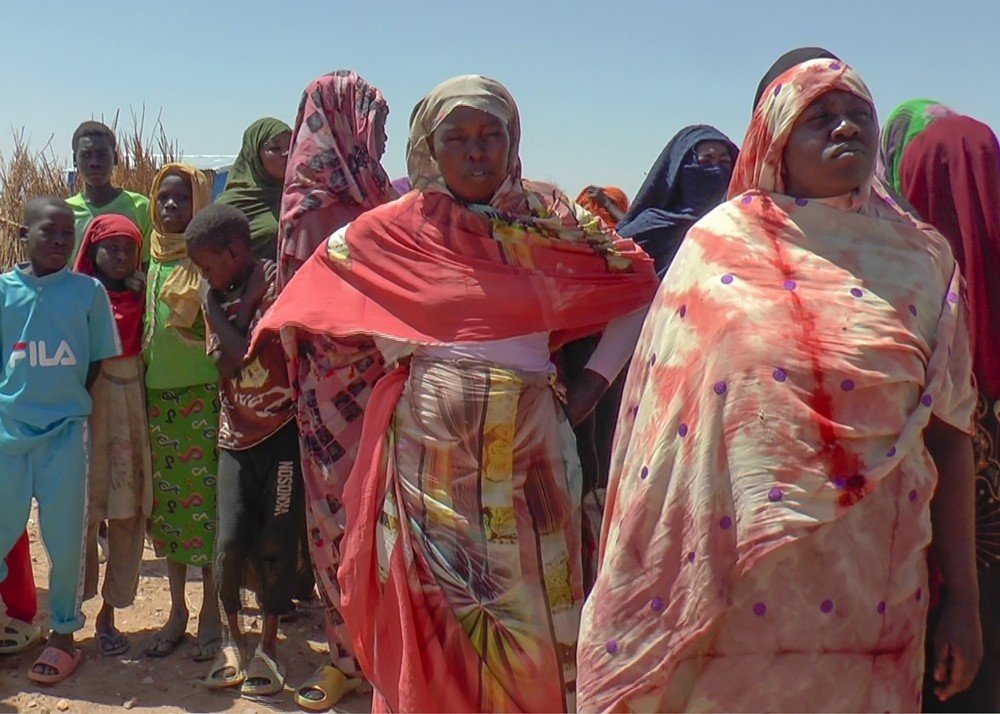Rome, 6 April 2024 (TDI): Food aid for thousands of Sudanese refugees in Chad, a few of whom are on the brink of starvation, will be suspended next month, the World Food Program reported.
Since the conflict in Sudan broke out a year ago, over half a million Sudanese refugees have escaped to Chad, with the country now being one of Africa’s main refugee destinations with over 1 million refugees.
However, the World Food Program reports that, it is battling to feed all of the Sudanese refugees, with many not leaving out meals. Moreover, over half of the Sudanese refugee children under the age of five, are suffering from severe anemia.
Furthermore, a supply route from Chad into Sudan’s Darfur region, where hunger is aggravating, is also at risk because of shortages in funding, the World Food Program reports.
Sudanese refugees in Chad
Life saving food aid in Chad for thousands of refugees from war ridden Sudan would be put a stop to in April without international funding, a UN agency reported.
The UN World Food Program is appealing for $242 million in donations to continue providing for 1.2 million Sudanese refugees, as the upcoming rainy season threatens to halt road access for humanitarian deliveries in eastern Chad.
Over 559,000 Sudanese refugees and 150,000 Chadian returnees have fled to Chad, since the eruption of the recent violence, drawing up the desert nation as one of the “fastest growing refugee populations in Africa”, the WFP reported.
The UN Security Council has raised its voice for a ceasefire in Sudan for the Muslim holy month of Ramadan. Thousands have lost their lives in the violence.
Displaced Sudanese in South Darfur
Displaced people who escaped to Rahad El Berdi in South Darfur, are undergoing a severe shortage of drinking water, food, medicine and shelter materials.
Humanitarian Aid Commissioner Taha Makhtoum reported to the Radio Dabanga from South Darfur that, the towns 26 shelter centers houses 35,000 displaced people, including 300 families hosted by their residents in homes.
“Most of them come from other places in Darfur and fled from battles between the Sudanese army and the Rapid Support Forces (RSF) or inter-tribal fighting. But there are also people here who fled from Khartoum,” Humanitarian Aid Commissioner Taha Makhtoum reported.
In addition to this, the displaced Sudanese in Rahad El Berdi are over 530 pregnant women, 603 widows, 2,960 children under the age of five and 1,096 people with special needs.
The Humanitarian Aid Commissioner Taha Makhtoum also reported that, “The large number of displaced people in Rahad El Berdi locality puts a lot of pressure on the local services and resources, especially water.”
“The water crisis in the city is exacerbated because the livestock in the area has not left to the Central African Republic this dry season (February to May) due to the problems there,” the Humanitarian Aid Commissioner Taha Makhtoum reported.
Also Read: Sudanese children face worst malnutrition says UNICEF
Delivery of aid
The international Organization for Migration reported that the number of people and refugees because of the war had increased to 8.5 million.
The number of the new displaced Sudanese finding a place to stay within Sudan had reached 6.5 million, bringing the total number of people displaced people in the country to nine million.
The UN Office for the Coordination of Humanitarian Affairs (OCHA) in Sudan maintained in its Humanitarian Response Dashboard, that humanitarian needs in Sudan were deeply worrying before the SAF and RSF war took place in April of last year.
However, the OCHA reported that, “Despite the challenges, 77 humanitarian partners reached more than 2.3 million people with life-saving assistance since January 2024. Humanitarian organizations require US$2.7 billion to support 14.7 million people with multi-cluster assistance and protection services out of 24.8 million in need of assistance.”
Moreover, Sudan’s Humanitarian Aid Commissioner Salwa Adam reported that, 60 aid trucks, be permitted to cross from Adre to El Geneina in West Darfur.
Furthermore, Darfur Governor Minni Minawi reported an agreement with UN agencies and relief organization to transport from Port Sudan through Ed Debba in norther Sudan to Darfur.



